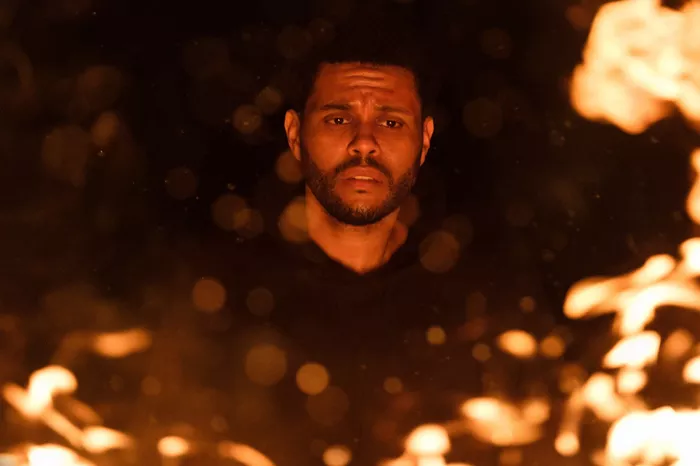In Hurry Up Tomorrow, Grammy-winning artist The Weeknd confronts fame, obsession, and self-destruction in what may be his most ambitious and confounding movie project to date. Billed as a thriller but better described as a fever dream of celebrity regret, the film stretches nearly two hours, testing the patience of even his most ardent fans.
The movie, which coincides with The Weeknd’s sixth studio album, is a semi-autobiographical narrative exploring the fallout from a twisted romantic entanglement with a deranged groupie. While audiences might expect a sharp psychological descent or biting commentary, what they get instead is a disjointed blend of confession and satire—wrapped in a cinematic package that can’t decide what it wants to be.
Drawing inspiration from a real-life moment—when The Weeknd (born Abel Tesfaye) lost his voice filming HBO’s The Idol amid a global tour—the movie attempts to mirror the artist’s own crisis of identity. However, as with his previous stunts—such as the bandaged face gimmick promoting After Hours or his surreal Super Bowl halftime performance—the line between sincere self-reflection and performance art remains frustratingly blurred.
Directed by Trey Edward Shults and co-written by The Weeknd and The Idol creator Reza Fahim, Hurry Up Tomorrow marks the artist’s third attempt to fuse his musical world with cinema. It’s his first feature-length movie, and while the film is technically polished, its narrative lacks the focus to truly resonate. Shults, known for his ability to convey emotion through tone and atmosphere, leans heavily on stylized visuals—too heavily at times—making the film feel more like an extended music video than a cohesive story.
The plot follows The Weeknd’s character as he crumbles under the weight of fame, drug use, and the emotional consequences of his own behavior. His voice fails him on stage, prompting an escape that leads to a fateful encounter with Anima (Jenna Ortega), a mysterious woman with a dangerous past. Unbeknownst to him, she’s already burned down his childhood home. What begins as a night of connection in a luxury hotel spirals into a nightmare, culminating in a brutal physical and psychological descent.
Shot on 35mm film, Tomorrow is visually stunning. Sweeping views of the Canadian Rockies and sun-soaked Southern California provide a striking backdrop. Ortega and The Weeknd share magnetic on-screen chemistry, and Tesfaye himself remains compelling—exuding an energy reminiscent of Michael Jackson, right down to his homage via a Thriller-style jacket. Yet the movie squanders this potential by indulging in opaque storytelling and style over substance.
Despite featuring a capable supporting cast, including Barry Keoghan as the protagonist’s friend and manager, the film barely utilizes its talent. Keoghan’s brief screen time is a glaring missed opportunity. Meanwhile, Ortega’s Anima evolves into a kind of meta-commentator, critiquing The Weeknd’s music within the film—a narrative choice that feels more grating than insightful.
The movie’s blend of album and cinematic experience follows in the tradition of projects like Purple Rain and The Wall, but unlike its predecessors, Hurry Up Tomorrow lacks narrative clarity and thematic payoff. Instead of offering a fresh take on the tortured artist trope, it lands somewhere between self-parody and self-indulgence.
In the end, Hurry Up Tomorrow is less a gripping thriller than a meandering reflection on fame and ego. It plays like an elaborate inside joke at the audience’s expense—one that might make even The Weeknd wince in retrospect.
Hurry Up Tomorrow is now showing in cinemas across the US and UK.

